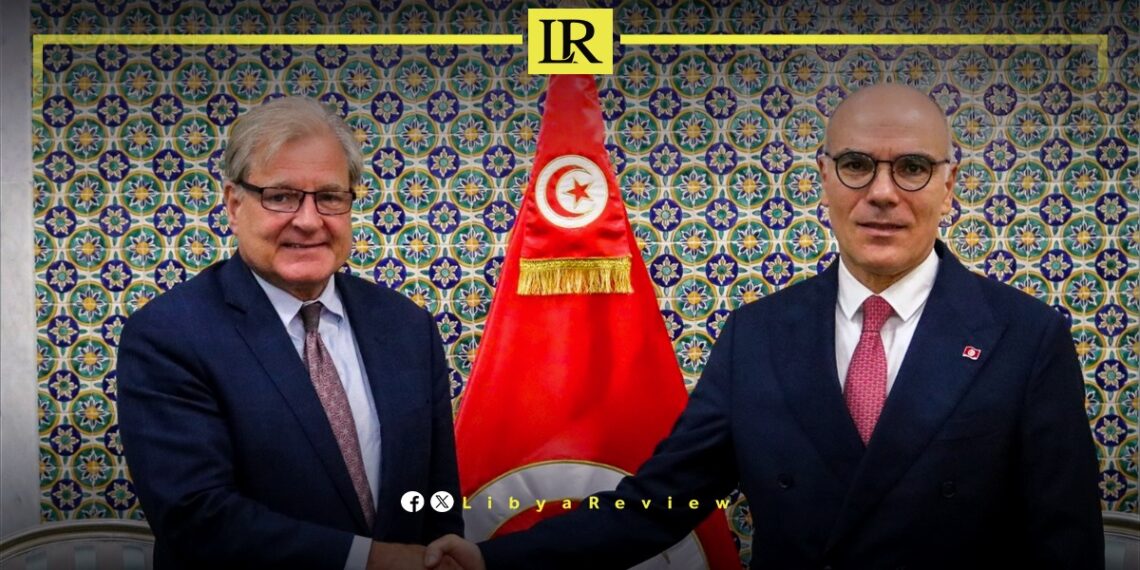Tunisian Minister of Foreign Affairs, Migration, and Tunisians Abroad, Nabil Ammar, welcomed U.S. Ambassador to Tunisia, Joey Hood, alongside U.S. Special Envoy to Libya, Richard Norland. The meeting underscored the robust friendship and multifaceted cooperation between Tunisia and the United States, exploring ways to further strengthen and diversify their bilateral ties.
The discussions also emphasised the importance of enhancing coordination on various regional and international issues of mutual interest. In the context of Libya’s ongoing political situation, Minister Ammar reiterated the Tunisian President’s stance that a Libya-centric solution, fostered through consensus and Libyan leadership under the auspices of the United Nations, is essential.
Ammar reaffirmed Tunisia’s commitment to supporting efforts aimed at achieving a comprehensive and lasting settlement that ensures Libya’s security, stability, unity, and sovereignty over its resources and national wealth.
From his side, U.S. Special Envoy Norland appreciated Tunisia’s constructive role in facilitating dialogue among Libyan factions. He reiterated the U.S. position against imposing solutions through force and expressed readiness to coordinate with Tunisia to push for a political settlement in Libya based on dialogue and negotiation.
Libya has been in chaos since a NATO-backed uprising toppled longtime leader Muammar Gaddafi in 2011. The county has for years been split between rival administrations.
Libya’s economy, heavily reliant on oil, has suffered due to the ongoing conflict. The instability has led to fluctuations in oil production and prices, impacting the global oil market and Libya’s economy.
The conflict has led to a significant humanitarian crisis in Libya, with thousands of people killed, and many more displaced. Migrants and refugees using Libya as a transit point to Europe have also faced dire conditions.
The planned elections for December 2021 were delayed due to disagreements over election laws and the eligibility of certain candidates. This delay has raised concerns about the feasibility of a peaceful political transition.
Despite the ceasefire, security remains a significant concern with sporadic fighting and the presence of mercenaries and foreign fighters. The unification of the military and the removal of foreign forces are crucial challenges.


